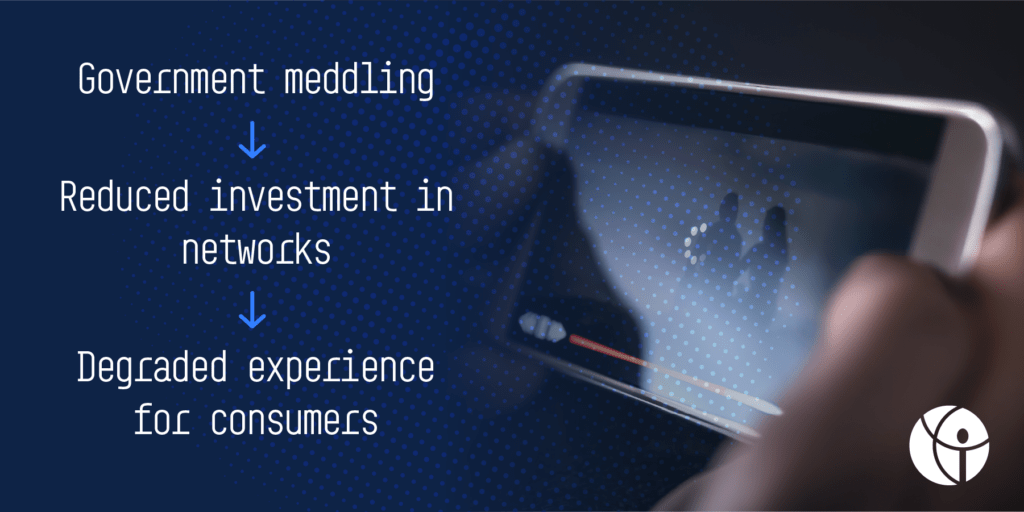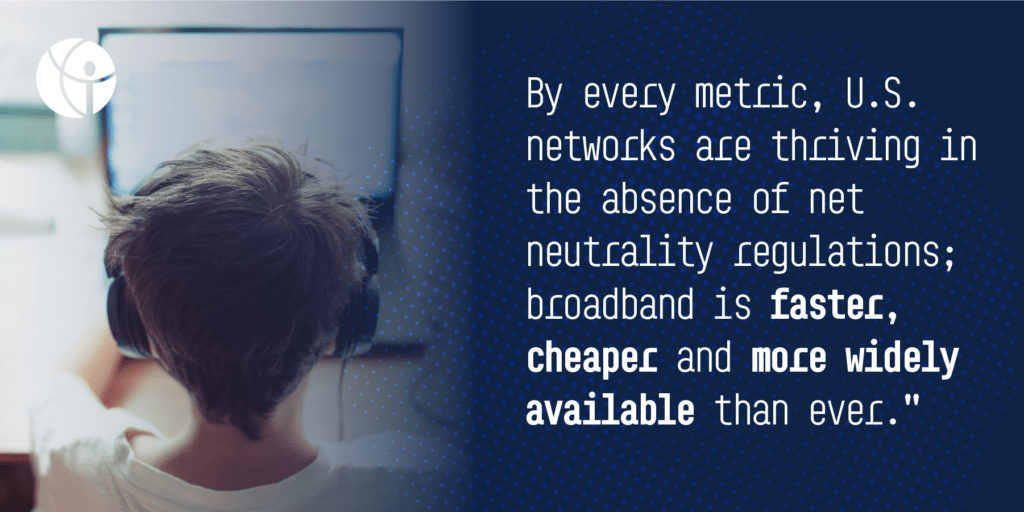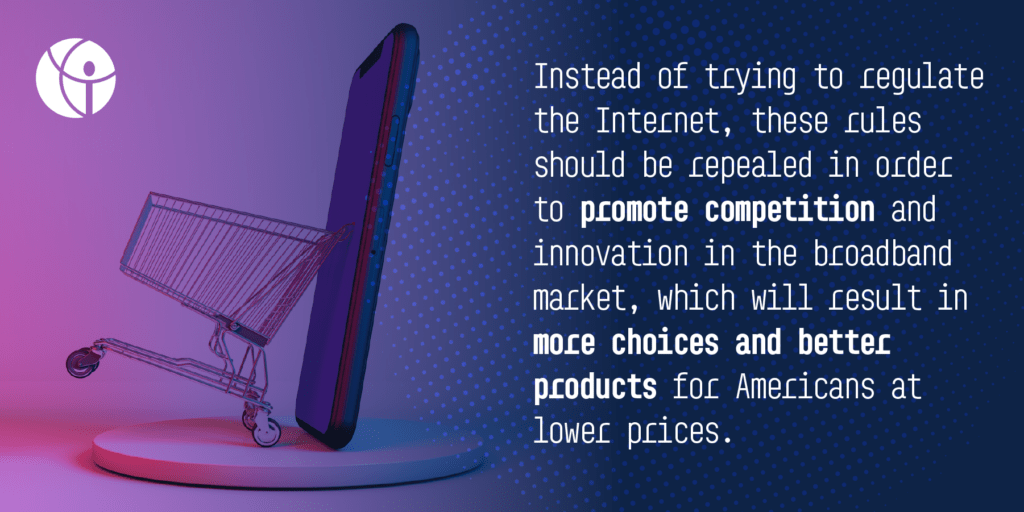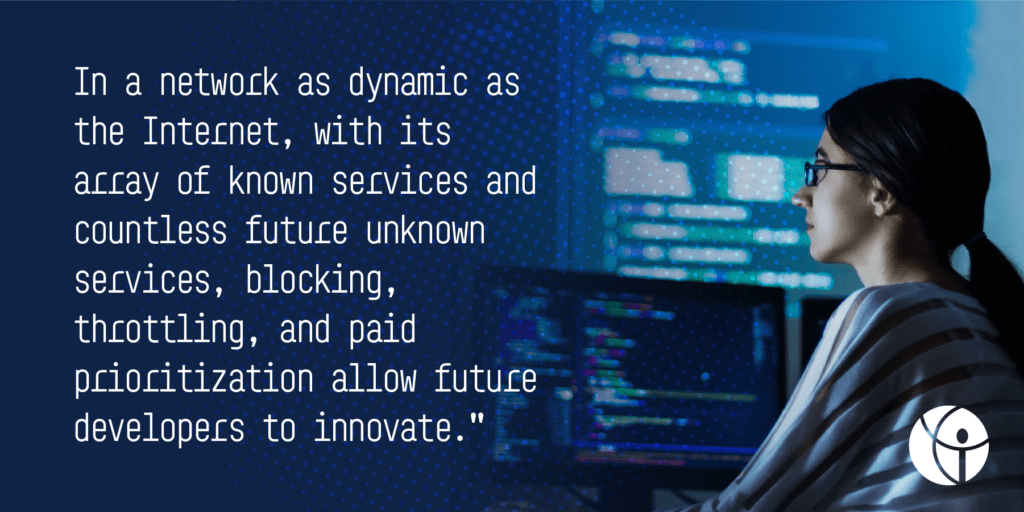
What is Net Neutrality?
“Net neutrality” refers to a controversial set of Internet regulations issued by the Federal Communications Commission (FCC). The concept of net neutrality originally focused on requiring broadband providers to let their subscribers use applications, services, and devices of their choosing.
But net neutrality has come to mean the straitjacketing of the Internet by treating broadband providers like public utilities (like phone or cable companies) under the same 1934 regulatory regime used to govern the old AT&T Ma Bell telephone monopoly.
After mostly decades of enjoying a hands-off approach from Washington that allowed a vibrant, open, and free Internet to flourish, newly proposed FCC rules could subject the Internet to more government control than it has ever known in the United States.
How do net neutrality regulations affect consumers?
- The 2015 net neutrality regulations, designed to protect consumers, may have reduced investment in broadband and innovation. A 2017 study found that when the rules were in effect, consumers saw slower speeds and fewer plans to choose from.
- This reduction in investment could harm low-income and rural areas where improved broadband is needed.
- Before these regulations, there was no clear evidence of the problems they were meant to prevent.

Should we keep broadband private or enforce net neutrality regulations like Europe?
The broadband market in Europe, which has long been regulated like a utility, has experienced only half as much investment in wireline service as the United States. Meanwhile, Europeans’ average mobile broadband speeds are 30 percent slower than what Americans enjoy.

What can the FCC and Congress do?
Over the past decade, the FCC has sought to transform itself into an Internet regulator in spite of a clear directive from Congress to the contrary.
Instead of trying to regulate the Internet, these rules should be repealed in order to promote competition and innovation in the broadband market, which will result in more choices and better products for Americans at lower prices. Rather than hamstringing telecommunications progress, the Federal Communications Commission would be wise instead to spend its energy on getting spectrum into productive use and make sure the tens of billions in federal broadband subsidies are being spent wisely.

Does blocking, throttling, and paid prioritization help us or harm us?
Blocking, throttling, and paid prioritization are all around us and serve to benefit society. The U.S. Postal Service and other shipping services have expedited shipping—a form of paid prioritization. Carpool or HOV lanes allow for those who meet the qualifications to arrive at their destination faster because other vehicles are blocked from entering those lanes. Express lanes at grocery stores only allow those with a certain number of items to receive expedited checkout. The hypothetical fear that broadband companies will use blocking, throttling, and paid prioritization in order to extort higher prices from users and content providers is unlikely to happen in the current global market. Even if these worst case scenarios come to pass, there are current laws enforced by the Department of Justice and Federal Trade Commission that would protect and reimburse harmed consumers.
